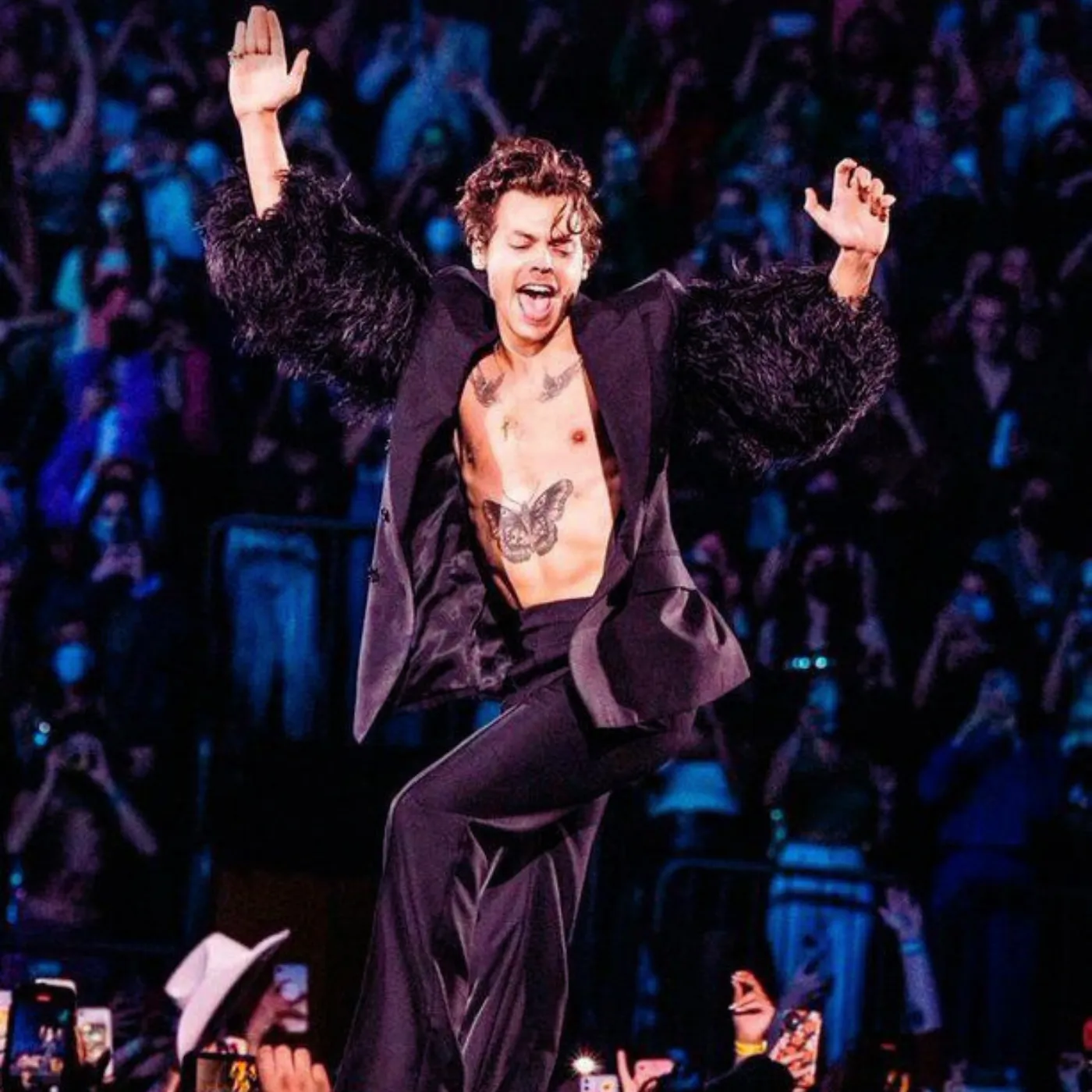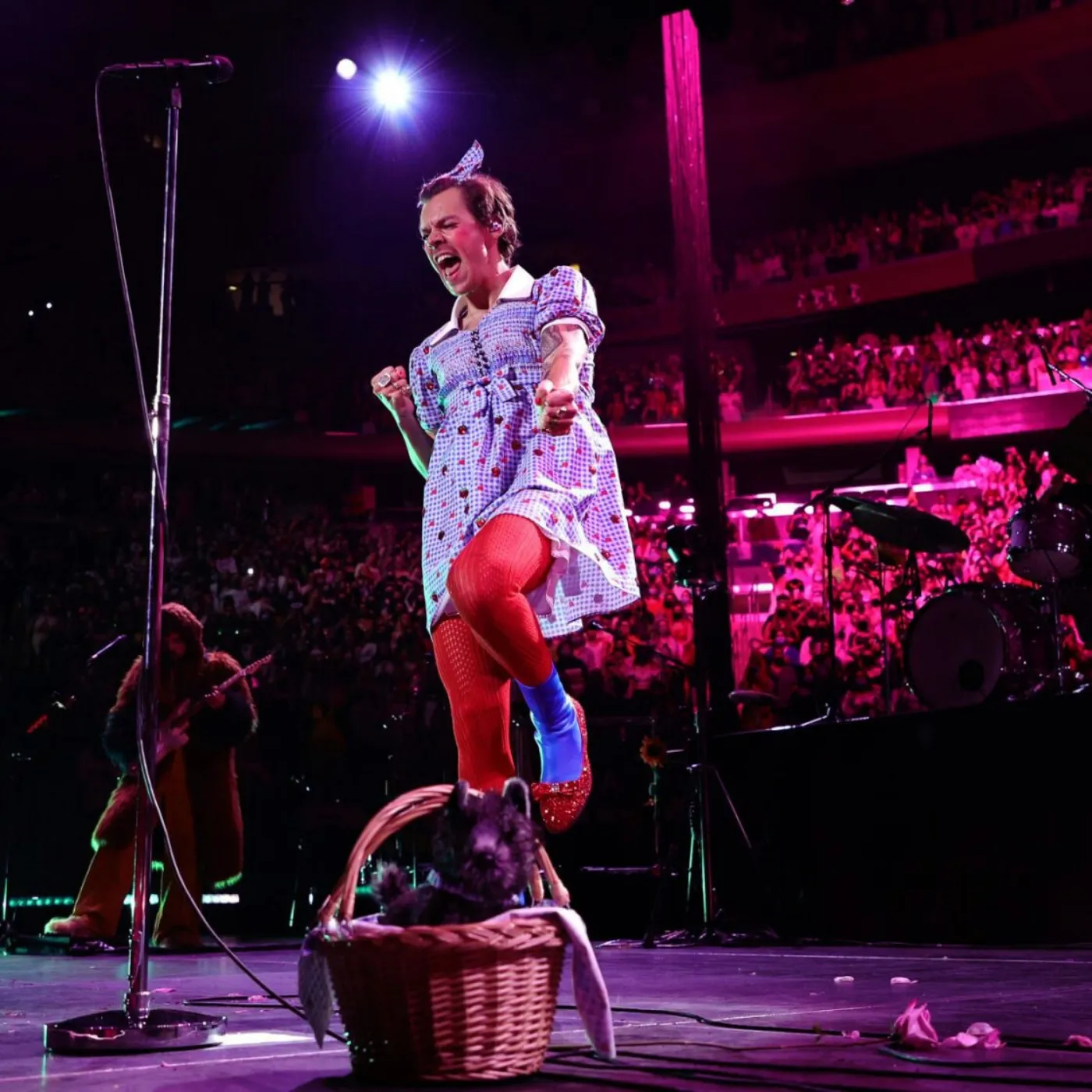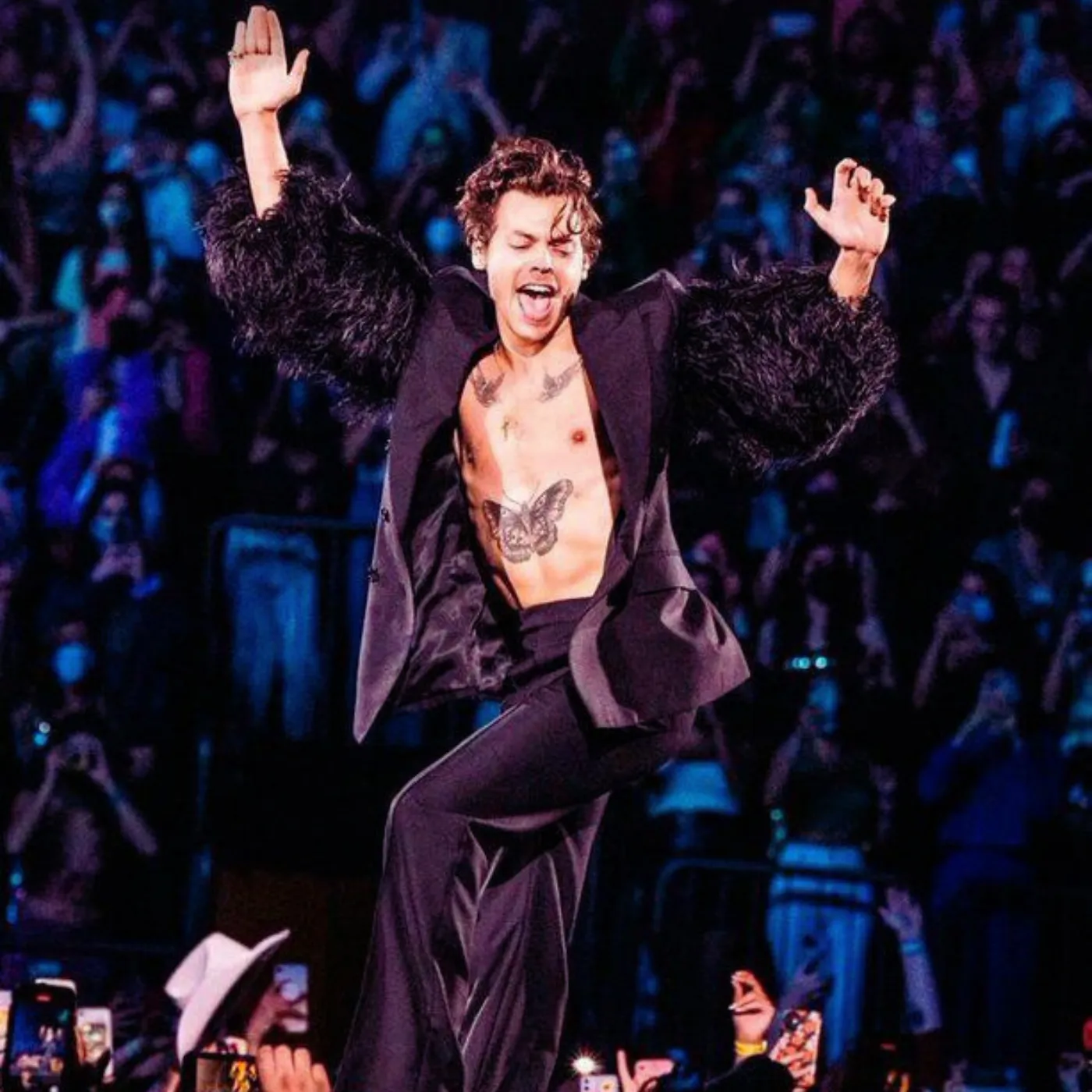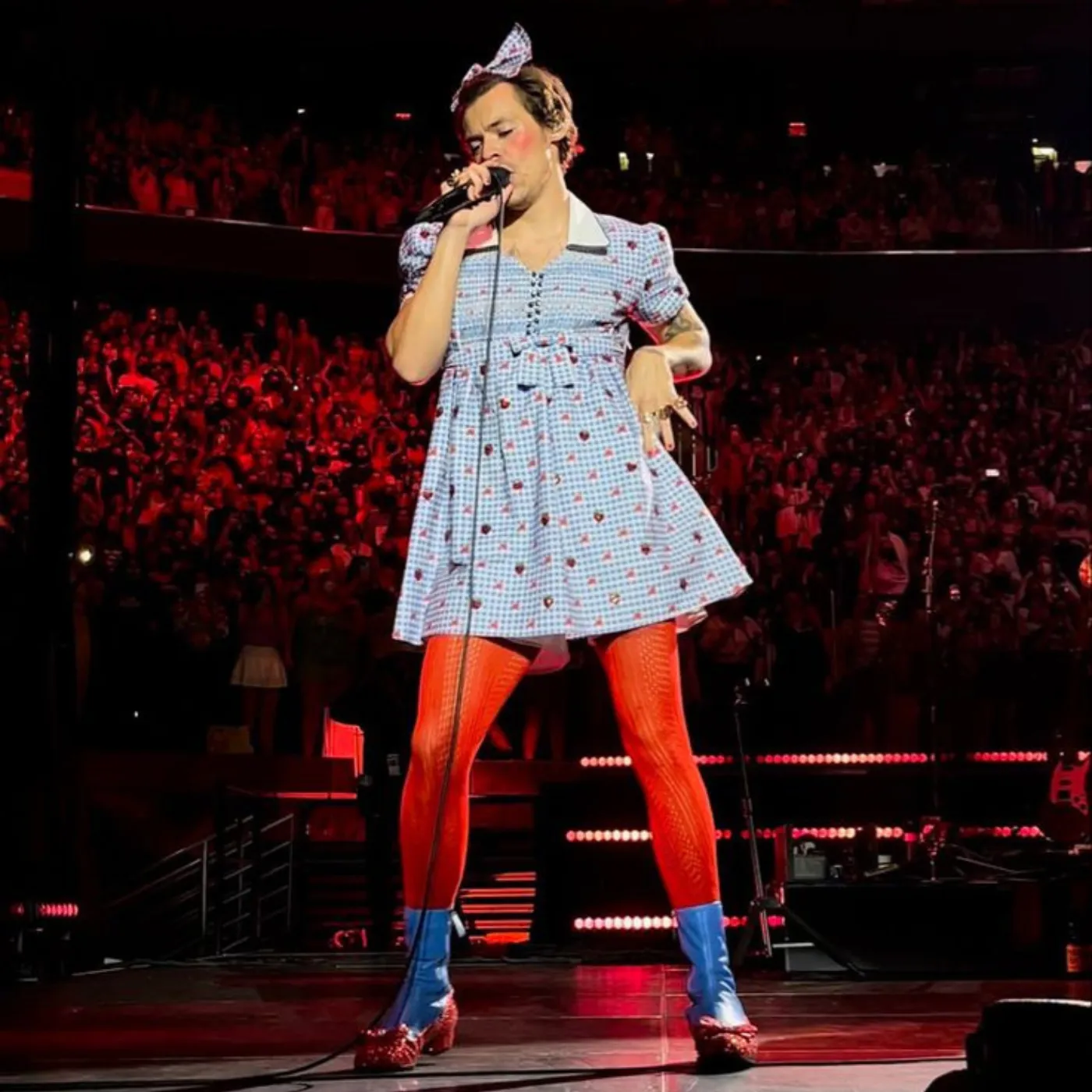

Noel Gallagher Just Took a Swing at Harry Styles And the Internet Is Exploding
It takes a certain kind of bluntness to stir the music world in 2025, and once again, Noel Gallagher has delivered. The former Oasis frontman—known as much for his sharp tongue as for his songwriting—has set social media ablaze with his latest jab at the state of modern music.

In a recent interview, Gallagher didn’t hold back. Reflecting on the near-total absence of bands in today’s mainstream, he pointed a finger at the industry’s obsession with curated pop stars. His words? Brutal. “The music industry likes people like Harry Styles, where they can say, ‘Wear this dress, sing that, and shut it.’“
Cue the outrage. Cue the applause. And cue the internet chaos.
A Shot Fired at the Pop Machine
Gallagher’s criticism isn’t new. He’s spent years mourning the decline of raw, guitar-driven music. But this time, his target wasn’t just the industry; it was Harry Styles—arguably the most visible solo artist of the past decade. With multiple Grammys, record-breaking tours, and a fashion profile that redefines modern celebrity, Styles is not just a singer. He’s a full-blown cultural institution.
That’s precisely what seems to bother Gallagher.
To him, Styles represents a system where image supersedes authenticity, where instructions replace inspiration, and where commercial packaging trumps creative freedom. It’s not just personal. It’s philosophical. Gallagher believes we’ve traded bands with grit for brands with gloss.
Why This Hit Hard
Let’s be clear: Gallagher didn’t name Styles as an artist lacking talent. What he called out is the system that surrounds artists like him. A system where stylists, choreographers, publicists, and social media strategists work in concert to create the illusion of spontaneity. Where every outfit, every tweet, and every interview answer is filtered and fed through a commercial lens.
It’s a brutal critique. But it resonates.
In an era where authenticity is more performative than ever, Gallagher’s statement struck a nerve. Fans of Styles rallied to his defense, pointing to his songwriting credits, his artistic risks, and his genre experimentation. But even some industry insiders admit he might have a point.
The Band Breakdown: Where Did They All Go?
Look at the charts today. Solo acts dominate. Billboard Hot 100 is filled with names that rarely share the spotlight. The age of the four-piece guitar band leading global culture seems almost quaint. Even rock festivals now headline DJs and pop stars.
Gallagher’s gripe isn’t just nostalgic. It’s structural. Bands take time, chemistry, and compromise. They don’t fit easily into the influencer-driven model of modern fame. Pop solo artists, on the other hand, can be marketed like products—efficient, focused, and controlled.
And no one, arguably, embodies that system better than Harry Styles.

The Fashion Factor
One of the most viral parts of Gallagher’s quote? “Wear this dress.” That line wasn’t subtle. It was a direct dig at Styles’ famously bold fashion choices. Dresses, pearls, painted nails—Harry has blurred style lines in ways that delight fans and enrage purists.
To Gallagher, that wardrobe isn’t rebellion. It’s branding. It’s costume over conviction. But to a younger generation, Styles’ fashion is precisely what makes him relevant. It’s part of his fearless image, his willingness to break molds.
So who’s right? That’s the million-dollar question. And the divide isn’t just generational. It’s cultural.
Is the System Broken or Just Evolved?
The real debate here isn’t about Styles. It’s about the machinery behind modern music. Have we reached a point where raw creativity is polished out of existence? Or have we just evolved past the old models Gallagher still reveres?
Some argue that pop artists like Styles are collaborative canvases for teams of creatives, and that’s a legitimate form of artistry. Others say it’s artificial, that true musicianship requires struggle, unpredictability, and chaos.
Whatever side you take, Gallagher has accomplished something few in rock can still do: make the world stop and argue about music.
What Harry Represents Now
It’s no accident that Noel Gallagher aimed his fire directly at Harry Styles. In 2025, Styles isn’t just a chart-topping artist—he’s a cultural blueprint for what the music industry prioritizes: virality over vulnerability, aesthetic over authenticity, and strategic silence over rebellion.
To many, Styles is the poster boy of the algorithm era. He knows how to generate headlines without saying a word. He’s the master of the “blink-and-you-miss-it” aesthetic tease, the limited-edition merch drop, and the ambiguous quote. Everything he does is just enough to keep people watching—without ever tipping too far into chaos.
His resume is ironclad: sold-out world tours, three Grammy wins, genre-bending albums, and blockbuster film roles. He’s moved from boy band breakout to global brand—a fashion icon, film lead, and viral machine all rolled into one. On paper, it’s a dream career.
But for critics like Gallagher, that’s the problem.
Styles has become a symbol—not of rebellion, but of compliance in couture. He represents an era where artists no longer need to struggle, challenge, or even speak up. All they need to do is look interesting and stay on message. His evolution from singer to symbol is so seamless, so pristine, that some question whether the messiness of true artistry has been lost in the process.
This isn’t just about Styles’ talent (which few seriously deny). It’s about what he embodies: the industry’s preference for controllable stars over unpredictable voices. The industry doesn’t just support him—it protects, polishes, and positions him as a global ideal. And whether that’s genius or manipulation depends on who you ask.
So maybe Styles isn’t the villain here. Maybe he’s the ultimate survivor in a system that rewards style over soul. Maybe he’s not gaming the industry—he’s winning it. But the cost of that win, Gallagher argues, is the death of the band, the silencing of chaos, and the disappearance of the raw, ragged edge that once defined music’s most revolutionary eras.
The Bottom Line
Noel Gallagher didn’t just take a jab at Harry Styles—he dropped a grenade on a generation of manufactured stardom. His comments hit harder not because they were shocking, but because they forced people to confront an uncomfortable truth:
Are we still moved by music—or are we just hypnotized by its marketing?
In a time when headlines vanish in minutes and scandals expire before they begin, Gallagher’s quote stuck. Why? Because beneath the snark and sarcasm was something much deeper: a generational divide. One side craving rawness, risk, and resistance. The other embracing polish, perfection, and platforms.
Styles, like it or not, is the face of the latter. And that’s why he was the perfect—maybe even inevitable—target.
But maybe the real debate isn’t Styles vs. Gallagher. It’s not rock vs. pop. It’s art vs. industry. Rebellion vs. branding. Chaos vs. control.

And if Gallagher’s words lit a fire, it’s only because deep down, many are still wondering:
Has the music industry evolved… Or has it surrendered?
And if we’re all just tuning into the product, not the passion—what are we really listening to anymore?
Music?
Or marketing?


















